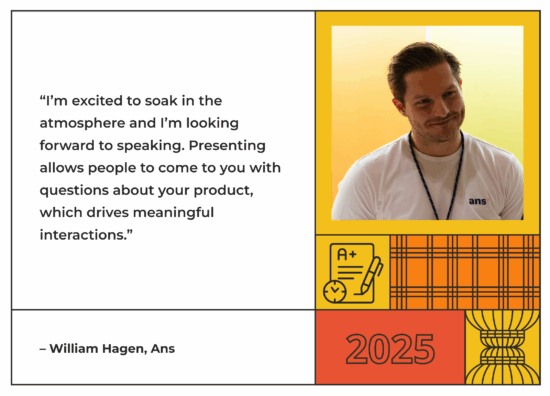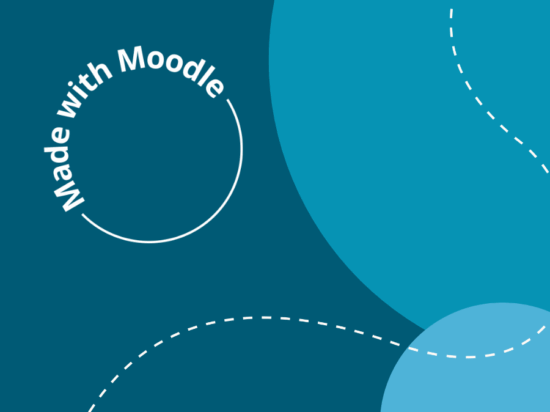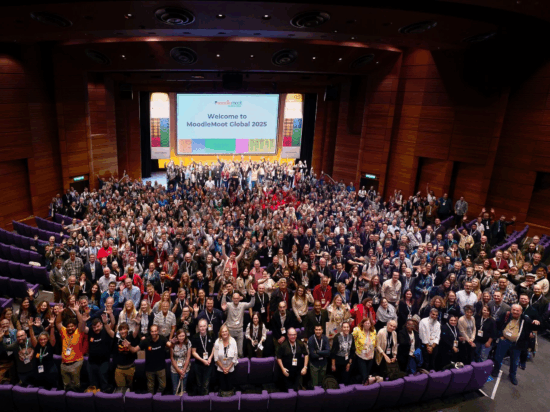When William Hagen talks about Ans, he goes back to the early days in Delft, Netherlands. Ans’s founders, Benjamin Wols and Kerim Haccou, were student assistants who would often find themselves tied to the tedious task of grading papers. It was not only tiring, but error-prone, which means it could cost a student their grades and eventually their professional future.
“We actually began as a startup from the Technical University of Delft. Our founders saw how much hassle it was to split up exam papers, hand them to different correctors, and then sort them all back together. They built a smarter way,” William, now the Marketing Manager at Ans, describes.
From that simple idea, today Ans has grown into a 25-person team leading the higher education exam software market in the Netherlands and Flanders. For William, who has been with the company for three years in roles spanning implementation, contract management, and now marketing, Ans is so much more than just another software — it reduces the burden of grading so that educators can focus on what matters most: teaching.
How do you build better exams?
William has seen firsthand how badly managed exams can drain educators of their time and energy. He says, “Teachers spend hours going over answers, or scheduling live sessions just to let students ask questions about their grades.” Many educators still rely on Word documents, juggling version after version, tweaking questions year after year.
Over time, that inefficiency builds up. William believes that a simple way to change this is by rethinking how questions are managed. On Ans, when you build a question bank, you can tag them, organise them, and generate the tests automatically.
It’s not only while creating exams that time runs out, but also while reviewing answers. Thankfully, Ans helps ease this burden, too. William explains, “If you’re not sure about a student’s grade, you can easily bring in a colleague or student assistant to review it. And instead of scheduling a whole live session for a student to contest their grade, they can see their results online and start a discussion right there in the platform.”
This exact combination of collaboration and transparency is central to how William views assessments. For him, grading is about fairness.
Fairness in grading
Ans’s tools make it possible to adjust a question’s weight if it turns out to be misleading or flawed, automatically updating all student scores in real time. At the national level, he points to the example of a shared nursing exam in the Netherlands, where multiple schools use a collective question bank to improve test quality together.
It’s a perspective that comes naturally to William, whose career began in designing educational games before he joined Ans. It taught him how much thoughtful design can help learning outcomes.
A burdenless future for grading
Looking ahead, William is optimistic about how technology can further improve assessment, but cautious about its role.
One example is grouping similar student answers so they can be reviewed at once, or providing grading suggestions based on patterns from previous answers. It’s still the teacher who makes the final call, but the process becomes faster and less repetitive.
He’s equally enthusiastic about innovations that support collaboration. Even after the pandemic, many educators work remotely, and tools that let colleagues grade and review together — almost like working in a shared document — are becoming essential.
In fact, Ans has recently released a feature with which you can randomise your exam papers, meaning if two students are sitting next to each other, they might not get the same series of questions — or at least not in the same order.
The first time at MoodleMoot Global
This will be William’s first time at MoodleMoot Global. Over the years, Ans and Moodle have built a very strong relationship and it reflects on people’s shared interest in both the platforms.
William himself is looking forward to connecting with the community, exploring how they can help educators improve their grading processes, and make things easier for them.
He is also anticipating the legendary Moodle Party, and it seems he has already picked out his outfit!
William’s first MoodleMoot Global promises to be a milestone for both him and Ans. If you’re curious to see Ans in action and hear William share insights on building fairer, more efficient exams, don’t miss his talk at the conference.



